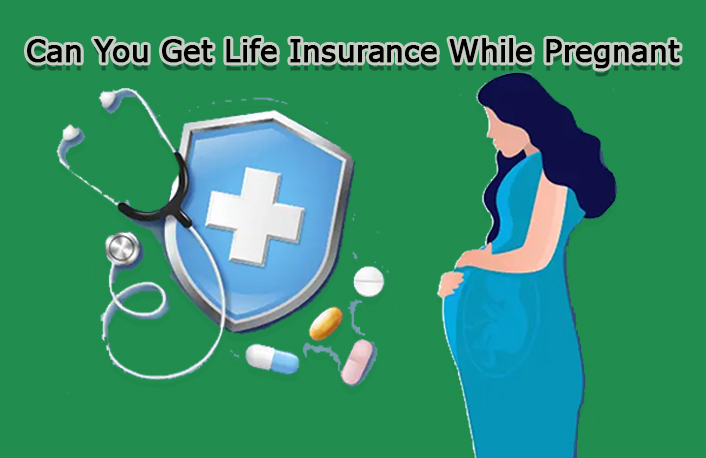If you’re hoping to become pregnant soon or are already pregnant, you have given serious consideration to how you will raise your future children on a physical, emotional, and even financial level. If you pass away, life insurance can help your family feel less financially burdened. However, you might be wondering if you can even get life insurance while you’re pregnant.

Yes, you are still able to purchase life insurance while pregnant. The process of applying for a life insurance policy is the same as it is outside of pregnancy as the questions will remain the same for you. In this article, we will explain what you need to know about getting life insurance while pregnant.
Why Should I Get Life Insurance While Pregnant
Purchasing life insurance when you’re expecting provides financial coverage for your family in the event of your death. Having your closest relatives as life insurance beneficiaries can assist them with end-of-life expenses and even replace your income loss while they grieve, should you pass away during or shortly after your pregnancy.
A life insurance payout could assist your grieving family in maintaining their standard of living financially by:
- Assisting with the mortgage payment.
- Covering the cost of private tutoring or independent schooling for older children.
- Paying the rent, utilities, and other living expenses for your family.
- Covering the price of daycare, such as child care or nursery services.
In addition, ensure that your kids don’t miss out on their preferred after-school activities and clubs by covering the cost of their extracurricular activities.
When Should I Get Life Insurance While Pregnant
Before becoming pregnant is the best time to purchase life insurance. Because insurers may view pregnancy as a health condition for underwriting purposes, but may not offer minimal premiums. Purchasing life insurance in the first three months of your pregnancy can help guarantee that your policy is authorized and operational by the time the child is born. In this way, after the baby is born, you will have coverage.
Factors that Affect Life Insurance Costs While Pregnant
One of the many factors that can affect the rate of your life insurance is whether or not you are pregnant. The following are some of the factors that insurance companies consider when calculating your premium:
- Age: Lower rates are typically awarded to younger applicants.
- Health status: If you currently have health issues, your premium may increase.
- Coverage type: Term life insurance policies are typically less expensive than whole life insurance.
- Coverage amount: The premium increases with the death benefit.
- Length of term: Premiums may increase with longer terms.
If you purchase a life insurance policy and become pregnant afterward, your premiums usually won’t go up. The cost of a life insurance policy does not always increase if you get one after getting pregnant. However, higher premiums might be the outcome of complications or indications of a high-risk pregnancy. Therefore, shopping around is essential to comparing insurance quotes and finding the best deal on coverage.
Should I Notify My Insurance Provider I’m Pregnant
You are not required to notify your life insurance provider of your pregnancy if you already have coverage. However, you must disclose your pregnancy to your insurance company, if you apply for life insurance while you are expecting.
Additionally, you must disclose to your insurance company any current medical conditions you may have, including pregnancy-related ones. Transparency and full disclosure are crucial. If you need to file a claim, your policy may become void if you neglect to notify your insurance company about your condition.
How Much Life Insurance Do I Need While Pregnant
Many financial professionals advise you to buy eight to ten times your income. For instance, you should get $500,000 in coverage if your yearly income is $50,000. Getting $400,000 in coverage is a good idea if you are a stay-at-home parent. This may help the surviving spouse with costs like daycare and a housekeeper in the event of your death.
Also, search for a business with an excellent financial strength rating and reputation. Moreover, to confirm that the agency and business have state licenses, you should also get in touch with your state’s insurance department. Find out if your agent offers life insurance by getting in touch with them. Seek recommendations from friends and family and compare quotes through the Internet. Lastly, know if life insurance is provided as a benefit to employees by speaking with your employer.
Add Pregnancy Insurance Riders to an Existing Life Policy
There’s no such rider as a pregnancy insurance rider, but there are riders for spouses and children. This rider can provide financial support in case of the death of their closest loved ones. Certain insurers can demand that you have added the rider at the time of policy purchase.
You can add a child rider to your policy to receive a small death benefit if your child passes away while they are covered by the rider. This usually lasts until they are 26. Lastly, a spouse rider provides a death benefit in case of your spouse’s death, and both riders are cheaper than separate policies.

